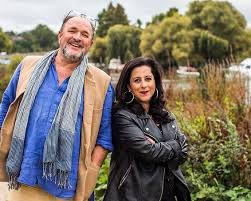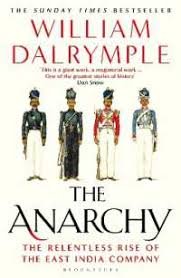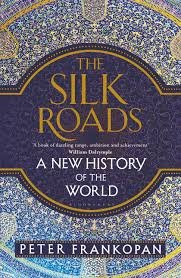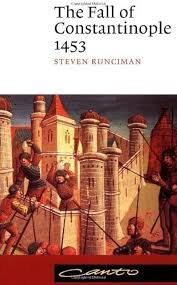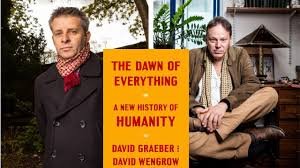What’s on your reading pile?
Shamelessly stealing my headline from the Hay-on-Wye Festival Facebook Page (and why not, it’s a perfect title!), after months of blog silence, I’ve ventured from my cave to make a posting. My excuse – and it’s a good one – is that I’m writing furiously again. As I have had numerous enquiries from readers as to when ‘Legacy’ will hit the bookshops, let me assure anyone interested that it is well on the way to completion, scheduled for a mid-2025 launch.
So, what have I been reading this summer? Obviously, I spend a lot of my time researching for my own writing, which means reading histories and documents, journals and articles, diaries and letters. It’s fairly heavy stuff in the main, so in my free time I usually just want to curl up with a story. By nature I’m an inveterate reader of fiction – of all shapes and sizes- but recently non-fiction has been top of my list. There are so many fascinating publications out there which bring serious material to the general reader, without compromising on scholarship. My university days are long behind me. I need to keep up with what’s current for historians today.
Everything changed for me recently when I began following the wonderful Empire podcast hosted by William Dalrymple and Anita Anand. I’ve been following their insightful, irreverent and highly erudite journey for a few months now so far through the British Empire, the Ottoman Empire, the History of Slavery and the Russian Empire - with several series still to come. These episodes, that accompany my regular runs through the rain forest near where I live, have brought me in touch with a whole new set of historians and subject matter outside my own field. Each week, Dalrymple and Anand invite a guest whose own particular expertise, added to their own scholarship, offers a fascinating introduction to the week’s topic. It is usually a real revelation, completely confounding the little bit I already knew. Most of all, the podcast has whetted my appetite to explore these subjects more deeply by introducing me to the works of other historians. As a result, I’m currently enjoying some wonderful journeys into historical narratives both old and new. I urge anyone with an interest in history to access this sensational series, hosted by two warm, witty, and learned presenters. You will not be disappointed!
William Dalrymple and Anita Anand
William Dalrymple
William Dalrymple is an extremely well-known historian of the East India Company, whose book Anarchy: The Relentless Rise of the East India Company, is arguably the best known. But Dalrymple (who appears to be related to a whole host of colonial figures himself!) has written many other important works, including The Last Mughal, The Return of A King, and his latest publication ‘The Golden Road: How Ancient India Transformed the World’. Along with his fellow podcaster Anita Anand, their book ‘Koh-i-Noor: The History of the World’s Most Infamous Diamond’ is another compelling exploration into the truth and legend behind that famous jewel, told in their inimitable style.
Anita Anand
I first came upon Anita Anand as a journalist and broadcaster for the BBC, and then a few years ago I read her fascinating biography ‘Sophia: Princess, Suffragette, Revolutionary’, the story of Sophia, one of the daughters of Maharajah Duleep Singh, the last rajah of the Punjab, who was himself raised at the court of Queen Victoria. His daughter’s life is fascinating and forms an interesting counterpoint to our traditional notions of British India.
Peter Frankopan
I had heard of his books before, but it was only through the Empire podcast that I became more familiar with his area of study. Frankopan is a relatively young historian who has made a significant impact already in the field of Global History, with special emphasis on the Byzantine and Ottoman periods. His most famous book – an eye opener that I cannot recommend enough – is The Silk Roads: A New History of the World. Although this book begins –and to some extent ends –on the actual Silk Roads, it encompasses so much more than the title implies. Beginning with the famous Silk Route between west and east, this book expands to become a journey along many major communication routes of the world. Once roads were built – the Romans understood this well – they become the medium of change, bringing together peoples, goods, economies, technologies, languages, faiths and subsequently armies, in their wake. The chapters of his book are wonderfully titled, reminiscent of the old Crosby and Hope ‘Road To…’ movies : The Road to Hell, The Road to Heaven, The Road of Gold, The Road to Empire, and so on.
Through the mechanism of following major routes, we track the history of the world anew. Humans have always been globally connected (within the limits of distance and time and the methods taken to traverse it), even if the West tends to view everything of important that has ever taken place as beginning with their discovery of places far off to them. Once viewed from a different starting place, many long-held myths are shattered. The most compelling parts for me were those that covered the late 19th-early 20th century, particularly in relation to the role the Middle East inadvertently played in the 1st World War period and the subsequent scramble for oil-rich areas to be divided up between the empires of the west. Every single misstep and corrupt act is shown to have played its part in setting the the foundations for the many current crises in these regions. It is our problem because it was of our making. Essential reading for the current age.
In the same vein, I also recommend Frankopan’s earlier work ‘The First Crusade: The Call From the East’. As a former medievalist, there was so much here that had always troubled me even as a naïve young student years ago. Medieval chroniclers who told the tale were obviously either ignorant of the whole story or wilfully spinning a tale of propaganda and lies. Even the viewpoint from the Eastern Emperor (or rather his daughter, the chronicler Anna Comnena) was treated by the west as flawed. No Arab sources were considered. The traditional western Christian narrative excuses the many shocking incidents that happened on the way as crusaders diverted from their original goal in order to make war on Christian states for their own aggrandisement, committing well recorded massacres and other crimes which was largely ignored or excused. The enterprise was hardly the religious pilgrimage par excellence that it purported to be. Frankopan delves into papal politics to demonstrate how much the notion of crusade was always driven by papal ambition as much as to free Jerusalem, a worthy but entirely side issue to the driving force behind the movement.
Steven Runciman
Whilst reading the above I was also tempted back to Steven Runciman’s majestic work, ‘The Fall of Constantinople’ (the end of the crusading story in one sense). I had first read this classic forty years or more ago; if anything it has improved with age- or perhaps I am more broadminded now than I once was. This work is historical narrative at its finest. Few novels can be quite as entertaining.
The Dawn of Everything: A New History of Humanity
I learned of this new publication during an episode on the History of Slavery series of Empire. All historians know that slavery has existed since the beginning of time in one form or another, found in all communities and in every part of the world. Or has it? Amongst many other presumptions that have always been cast in stone to be found in this book, Graeber and Wengrow (an American ethnologist and a British archaeologist) reveal that current physical evidence often seriously challenges this belief.
As more is understood about our very distant past, it seems that although slavery has always been extremely widespread, many communities all around the world never used it. As well as busting this particular myth, the two authors give many compelling examples that blow holes in other accepted tropes, proving them to be the result of aeons about which we know little and the presumptions of historians regarded as hard fact to fill in the gaps. Some of the other issues they discuss include beliefs such as that the hunter-gather periods of the Mesolithic must always evolve everywhere into to the settled agricultural communities of the Neolithic age , and whether the appearance of cities is always the result of the establishment of large agrarian hierarchies ruled by kings and nobles, to name but a few. Some of their evidence is obvious – e.g. studying Native American and nomad communities in Africa and Asia which even in the modern age differ from the model, but even more persuasive is a mind-blowing series of archaeological sites around the world (mostly that I had never heard of!) that challenge so many existing principles. I’m not a big fan of their convoluted and rambling writing style, nor do all their arguments land convincingly, but there is so much here that needs careful consideration, still rooted as our thinking remains in outmoded European 18-19th Enlightenment philosophies

